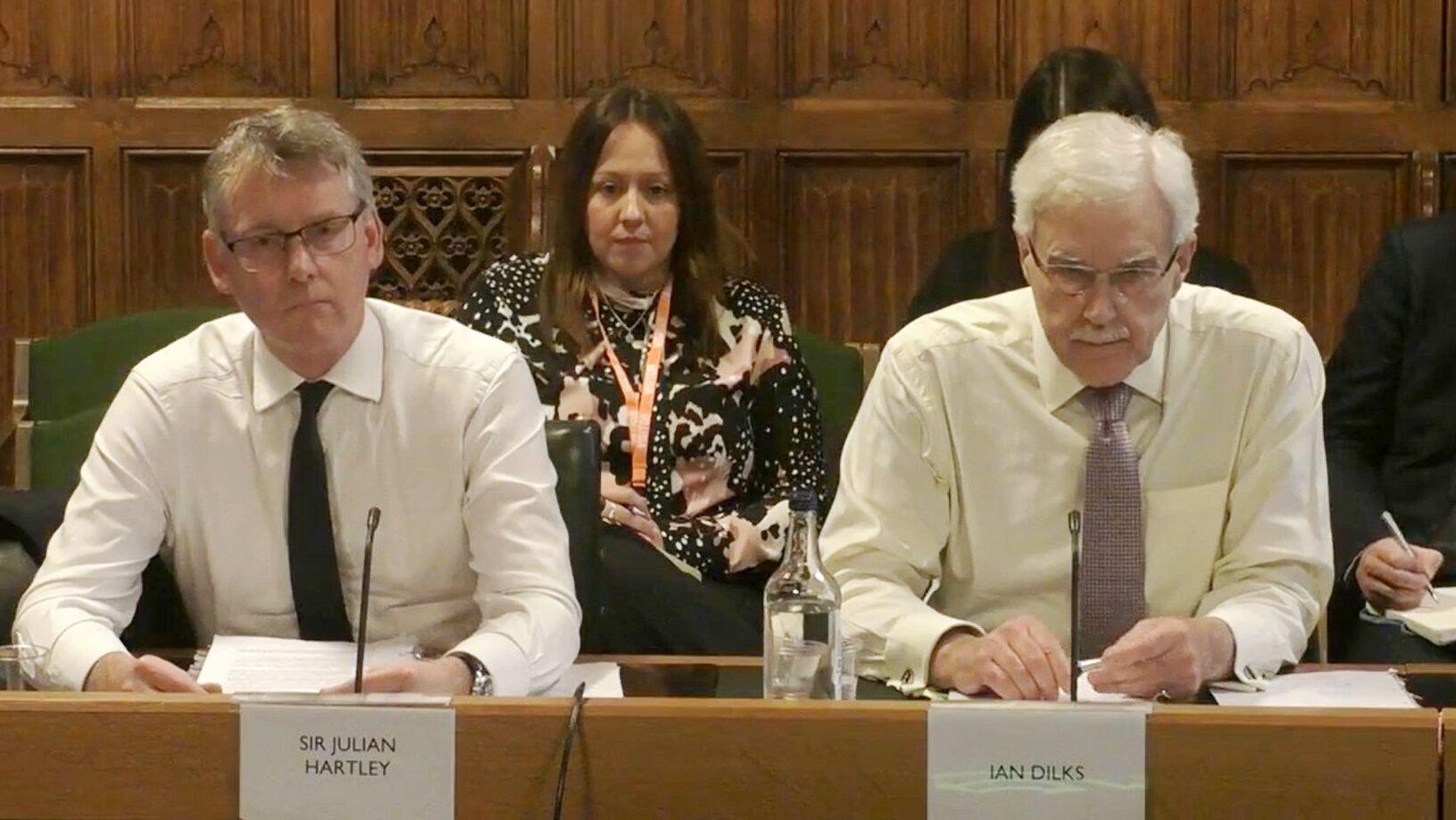Ops managers: the NHS’s go-to people
After more than two years of relentless pressure, many NHS operational managers are tired, fed-up and ready to leave their vital jobs. We talk to some who are determined to stick it out and are reaching out to support each other.

Operational managers have been the unsung heroes of the pandemic. While they may not face as much risk as frontline clinical staff, operational managers have been instrumental in keeping services running and redesigning pathways to ensure patients still get good care.
But, with already pressurised jobs, both the pandemic and the push for elective recovery have taken their toll. Analysis of MiP survey results suggest operational managers are particularly likely to want to leave their jobs and find “safer” roles elsewhere in the system. Anecdotally, operational jobs are also becoming harder to recruit to.
For many operational managers, juggling priorities while keeping patients and staff safe has been the key challenge. After doing this for so long they are desperate to see the pressure ease.
“We have higher urgent care demands than probably we have ever had,” says one operational manager who asked to remain anonymous. “It is almost as if winter has never ended. Not just this winter, but the year before’s too. We had a small reprieve last summer but not as we typically expected.
“We’re trying to balance patient safety and the financial efficiencies. It’s really difficult to have time and space to do the long term strategy work. Pressure to get patients home or into a community bed is constant.”
Juggling act
At East and North Hertfordshire Trust, where Chin Okunuga is managing director for unplanned care, the number of A&E patients actually rose during the pandemic from an average of 450 a day to around 600—and can hit 750 on some days.
“I start working as soon as I get in,” Okunuga says. “My first report of the day often comes in at 6.15am.” The day then becomes a blitz of meetings, reports and site updates: “My day does not really end until 7pm—it’s 12 to 13 hours,” she adds.
But as well managing this increase in unplanned care, trusts are meant to be increasing elective work in order to reduce waiting lists. For operational managers that can mean a juggling act: trying to keep enough beds to cope with emergency admissions while also doing the maximum possible elective work.
“We have this constant pressure of who do we treat first—the ones coming in through A&E or those who are elective,” says Okunuga. “There’s pressure to meet the [NHS Constitution] standards and to give the best possible care we can to the patient, but the demand is overwhelming—and everything is being done by staff who are utterly tired.”
Adrenaline keeps you going
Inevitably this level of pressure has had an impact on managers’ emotional state. “The pandemic has taught me how important my home life and family is,” explains Okunuga. “There have been times when my energy levels have been low. There was a time when I thought there was no end to it. But I think the adrenaline keeps you going. I always find a way to re-energise myself and come back.”
Another manager adds: “Operational management generally can be lonely. You may be responsible for a whole set of services but you are the only person in that role. Often you have to deal with your own issues. I have had some difficult times but on the whole I have kept going. Do I sleep okay? Well, normally I am pretty tired, so yes.”
Managers say the strong sense of camaraderie among operational teams was enhanced at the start of the pandemic when there was a common cause, but has diminished as the pandemic has become less prominent but the challenges remain.
“When it started we all had that energy, that sense of we would see it through and it would take six months or less. It took 26,” says Okunuga. “Now we have seen people changing their careers as the pressure has increased significantly.”
For her, the low point came at the start of the pandemic when it was unclear what the NHS was dealing with, staff were fearful and effective PPE was in short supply. She was particularly upset about staff feeling that management weren’t doing enough to protect them and about the disproportionate impact of the virus on people from ethnic minority backgrounds.
We’re not out of this yet
But for some other managers the future looks just as challenging as the past. “We’re not out of this and we’re unlikely to be out of this period of high demand any time soon… I don’t think the pressure will ease up,” says one operational manager who asked not to be named.
“We would expect to be out of winter pressures by now [mid-May] but we’re still facing high demand. But people are tired and fed up with not having that potential light at the end of the tunnel,” he continues.
“I am motivated and enjoy it because I want to make a difference. But it’s difficult because the expectations are beyond what they should be.”
While he understands the need to get the finances under control, he believes a “phased approach” is needed. “We’ve set some very ambitious funding plans which we’re going to struggle with,” he explains. “It means a lot of the things that we’ve been doing will be difficult, such as taking some of the team out for a couple of hours wellbeing. Things like that will have to be phased out.“
Emma Challans, director of culture and improvement at Sherwood Forest Hospitals, who founded the Proud2bOps network (see box), warns that most operational managers end up taking their work pressures home.
“They are always the go-to people. It’s extremely difficult to switch off. Some deal with that better than others and COVID has certainly heightened anxiety and worry,” she says, adding that some may be leaving work to return to more pressure at home: “They may have lost a close family member due to COVID, or someone in the family may have lost a job.”
Unrecognised and unrewarded
Ops managers are often not as good at looking after themselves as they are at caring for others, Challans adds, and many feel unrecognised and unrewarded, which can be very demotivating. Burnout can also be an issue—and here she feels Proud2bOps has a role to play in giving them a space where they can get support and even display their own vulnerabilities and doubts.
“We have had times… when morale felt really low. We have had colleagues share that they are rethinking what their next role will be,” she says.
MiP chief executive Jon Restell points to some particular challenges for operational managers, including being “on call” for areas they don’t have a detailed knowledge of; being based in services with a professional structure and reporting lines which they don’t naturally fit into; and a pay system which means some managers can wait five years for a pay rise, leading to quicker turnover as managers seek higher banded jobs elsewhere. He hopes the forthcoming Messenger review of NHS leadership will address at least some of these issues.
And Restell warns that some managers are thinking about packing it in. “People have done a magnificent job during the pandemic but they’re now looking ahead and asking, do I really have it in me to manage in this environment? I think a lot of these managers are thinking that if I can go, I will.”
Proud2bOps: a voice & support for operational managers
Proud2bOps is a national network of operational managers and leaders who work in health and care. The 850-strong network was set up in 2017 by Emma Challans—then a deputy chief operations officer—to provide a safe space where managers could come together to swap best practice, share experiences and seek support.
Challans (pictured right) says the approach is “deliberately developmental” and aims to add value while also influencing and giving operational managers a voice on matters of concern to them—such as changes to infection prevention and control and the elective recovery plan.
Recent sessions have included discussions on breaking down silos and creating a culture of psychological safety within organisations. The network has also held an in-person ‘reconnect and recognition’ event, attended by 50 members, including senior leaders from NHS England and Improvement.
For more information visit: mip.social/proud2bops.
Related News
-

Regulating the managers: more questions than answers
The Labour government’s plans for regulating NHS managers are still shrouded in mystery, and the three options on the table each have their pros and cons. Rhys McKenzie weighs up the choices and gauges the views of MiP members on the best way forward.
-

The inspector falls: why the CQC needs a fresh start
After years of chaos, the Care Quality Commission urgently needs to rebuild trust and credibility with the public and the services it regulates. What needs to change and what are the priorities for new boss Sir Julian Hartley? Alison Moore reports.
-

Voice, value and vision: what analysts need from the NHS
Data analysts play a vital role in an NHS which is increasingly data-driven and focused on public health trends. But the NHS faces fierce competition for skilled analysts and many feel the health service fails to value them or fully use their talents. Alison Moore reports.
